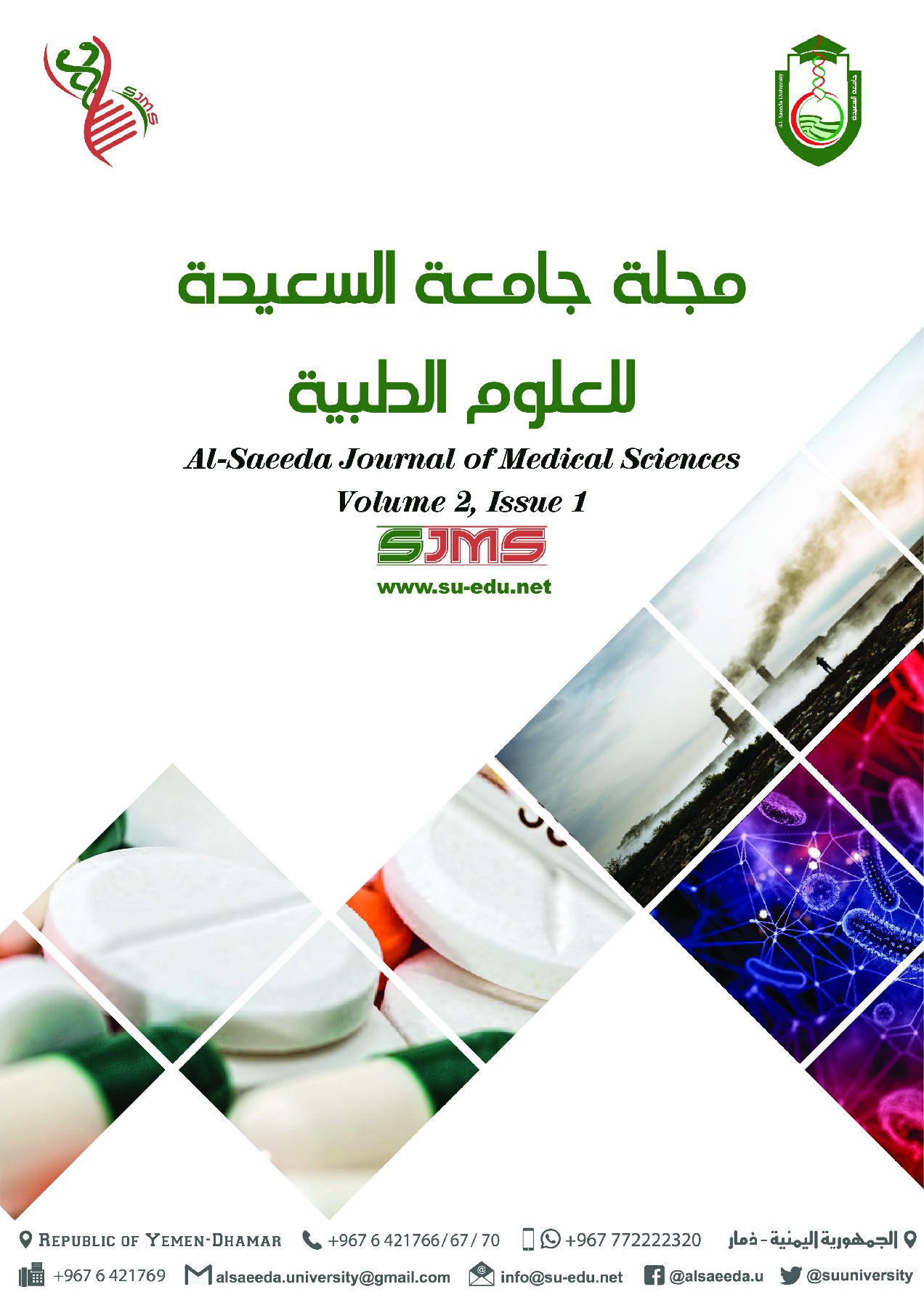
Al-Saeeda Journal of Medical Sciences
Yazarlar: Ahmed G. Al –Akydy, Ahmed Al-Washli, Samir Alsenafy
Konular:-
Anahtar Kelimeler:T. terrestris,Bacteria,Antibiotics,Aqueous extract,Ethanol extract
Özet: Nowadays multiple antibiotic resistance in both hospitals and the community has raised due to the indiscriminate use of commercial antibiotics commonly used in the treatment of infectious disease. Plants, including Tribulus terrestris, considered an important potential source of new antibacterial agents .Objective:This study aimed to evaluate the in vitro antibacterial activity of Tribulus terrestris, growing in Yemen using different extracts .Methods:The antibacterial activity of aqueous and ethanol extracts of different parts, fruits, stems, and leaves of Tribulus terrestris at different concentrations was evaluated on three bacteria namely, Staphylococcus aureus, Pseudomonas aeruginosa and Escherichia coli using disc diffusion assay. In addition, the synergistic effects of ethanol Tribulus terrestris extract werescreened with selected standard antibiotics .Results:Although, both aqueous and ethanol extracts of Tribulus terrestris not have an antibacterial effect against tested bacteria, the addition ofethanol extract of Tribulus terrestris to discs of ciprofloxacin and ampicillin/sulbactam increased the efficacy of ciprofloxacin against all tested bacteria and increase the efficacy of ampicillin/sulbactam against Escherichia coli in compare to the efficacy of ciprofloxacin and ampicillin/sulbactam each alone. Therefore, this indicates the synergistic effect between ethanol extract and both ciprofloxacin and ampicillin/sulbactam. On the other hand ethanol Tribulus terrestris extract decreased the diameters of inhibition zones of both gentamicin and vancomycin against Escherichia coli and Staphylococcus. aureus respectively .Conclusion:It is clear that the Yemeni Tribulus terrestris does not appear any satisfaction criteria, as an antimicrobial agents, being cheap and safe. Therefore, further studies should be carried out on T. terrestris from different regions of Yemen to isolate bioactive pure compounds, elucidate their structures and evaluate their antibacterial and other activities.